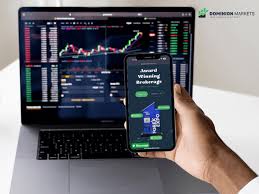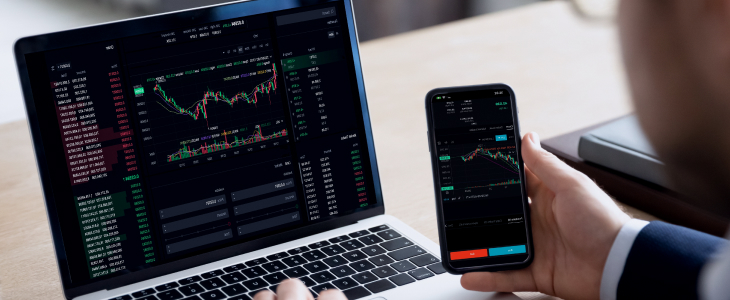- No Products In The Cart
- start shopping
The World of Forex Trading Understanding the Foreign Exchange Market

The World of Forex Trading: Understanding the Foreign Exchange Market
The foreign exchange market, commonly referred to as forex, is one of the most dynamic financial markets in the world. With a daily trading volume exceeding $6 trillion, it dwarfs other markets like stocks and commodities. Forex trading involves the buying and selling of currencies, and it plays a crucial role in global commerce, finance, and investment. This article explores the intricacies of forex trading, the mechanisms of the foreign exchange market, strategies for success, and the common pitfalls that traders face. If you’re interested in gaining deeper insights, you can check out forex trading foreign exchange market https://trading-asia.com/ for more resources.
Understanding Forex Trading
Forex trading is considered a speculative activity. Traders purchase one currency while selling another, capitalizing on fluctuations in exchange rates. The objective is to predict whether a currency will appreciate or depreciate against another. Understanding forex quotes is essential: currencies are quoted in pairs, such as EUR/USD or USD/JPY, indicating the amount of one currency needed to purchase a unit of another. For beginners, comprehending these pairs and how they interact is crucial in making informed trading decisions.
The Mechanics of the Forex Market
The forex market operates 24 hours a day, five days a week, and is divided into major trading sessions: the Asian, European, and North American sessions. This structure allows traders from around the globe to participate at any time. The market is decentralized, meaning it does not have a centralized exchange; instead, trading occurs through a network of banks, brokers, and institutions. Major players include central banks, commercial banks, hedge funds, corporations, and individual traders.
Key Participants in Forex Trading

There are several key participants in the forex market:
- Central Banks: These institutions manage a country’s currency, money supply, and interest rates. They play a crucial role in influencing currency values through monetary policy.
- Commercial Banks: They facilitate currency transactions for clients and often trade for profit themselves.
- Corporations: Businesses engage in forex trading for various reasons, including hedging against currency fluctuations when conducting international trade.
- Retail Traders: Individual traders, often referred to as “retail traders,” utilize online platforms to trade currencies for profit.
Types of Forex Trading Strategies
Successful forex trading requires a well-defined strategy. Here are some popular trading strategies:
- Day Trading: This strategy involves opening and closing trades within the same trading day to capitalize on short-term price movements.
- Swing Trading: Swing traders hold positions for several days or weeks to capture larger price movements.
- Scalping: Scalpers aim to make numerous small profits on minor price changes throughout the day.
- Position Trading: This long-term strategy involves holding positions for weeks, months, or even years, focusing on overall market trends.
Risk Management in Forex Trading
Risk management is a critical aspect of forex trading. Traders must protect their capital from significant losses while maximizing profit potential. Here are a few risk management techniques:
- Setting Stop-Loss Orders: A stop-loss order automatically closes a position at a predetermined price to prevent further losses.
- Position Sizing: This technique involves only risking a small percentage of trading capital on a single trade.
- Diversification: Spreading investments across various currency pairs can help mitigate risk.

Common Pitfalls in Forex Trading
Despite the potential for profit, forex trading is fraught with challenges and common mistakes. New traders often fall into several pitfalls:
- Lack of Education: Jumping into trading without a solid understanding of the market can lead to significant losses.
- Overleveraging: While leveraging can magnify profits, it also increases the risk of loss. Traders should use leverage judiciously.
- Emotional Trading: Making decisions based on fear or greed often results in poor choices. A disciplined approach is crucial.
The Future of Forex Trading
The forex market is continuously evolving due to technological advancements and regulatory changes. Retail trading has become more accessible with the rise of online trading platforms, allowing anyone to participate. Additionally, algorithmic trading and artificial intelligence are becoming integral parts of forex trading, offering traders new tools for analyzing data and executing trades.
The future will likely see increased regulation, as authorities aim to protect investors and ensure fair practices in the market.
Conclusion
Forex trading offers exciting opportunities for investors and traders alike, provided they approach it with the right knowledge and strategies. Understanding the mechanics of the foreign exchange market, developing sound trading strategies, and implementing effective risk management techniques are vital for success. As the market continues to evolve, ongoing education and adaptability will be key in navigating the challenges and opportunities in the world of forex trading.

